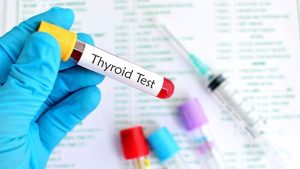
Understanding Hypothyroidism
Hypothyroidism, or an underactive thyroid, occurs when the thyroid gland doesn’t produce enough hormones to support vital bodily functions. This condition can impact metabolism, energy levels, and overall well-being. For those seeking treatment, understanding the available options and learning how to manage hypothyroidism effectively is key to maintaining a healthier, more balanced life.
Common Causes of Hypothyroidism
Hypothyroidism can be caused by a variety of factors, including:
- Hashimoto’s Thyroiditis: An autoimmune condition where the immune system attacks the thyroid.
- Iodine Deficiency: A lack of iodine, an essential nutrient for thyroid function.
- Medications: Certain drugs can interfere with thyroid hormone production.
- Thyroid Surgery or Radiation Therapy: Procedures targeting the thyroid can lead to reduced hormone production.
Understanding these causes helps patients and healthcare providers tailor effective treatments.
Signs and Symptoms of Hypothyroidism
Recognizing the Symptoms
Common symptoms include:
- Fatigue
- Weight gain
- Cold sensitivity
- Hair thinning or loss
- Depression or mood swings
- Constipation
- Muscle weakness or joint pain
Recognizing these symptoms early is crucial for residents to ensure timely and effective treatment of hypothyroidism.
Medical Treatments for Hypothyroidism
Hormone Replacement Therapy
The most common and effective treatment for hypothyroidism is hormone replacement therapy. This involves taking synthetic thyroid hormones, such as levothyroxine, to restore normal hormone levels. Regular monitoring ensures the correct dosage and helps prevent symptoms from recurring.
Regular Blood Tests
Monitoring thyroid-stimulating hormone (TSH) and free thyroxine (T4) levels through regular blood tests is crucial. These tests allow healthcare providers to adjust treatment plans based on the patient’s response and changing needs.
Specialized Care
Patients gain significant advantages from consulting thyroid health specialists who develop personalized treatment plans for hypothyroidism. These experts focus on delivering exceptional care, helping to enhance patients’ overall quality of life.
Lifestyle Adjustments to Support Hypothyroidism Treatment
Nutrition for Thyroid Health
A well-balanced diet supports thyroid function and overall health. Key nutrients include:
- Iodine: Found in seafood, iodized salt, and dairy products.
- Selenium: Found in nuts, seeds, and fish, this mineral supports thyroid hormone production.
- Zinc: Essential for thyroid function, zinc is present in meat, legumes, and whole grains.
Working with a dietitian allows patients to develop a tailored nutrition plan that supports and enhances their treatment.
Physical Activity
Regular, moderate exercise improves metabolism, boosts energy levels, and supports weight management. Activities such as yoga, swimming, or walking can be particularly beneficial for individuals with hypothyroidism.
Stress Management
Stress can negatively impact thyroid health. Incorporating mindfulness practices like meditation, deep breathing, or journaling can help reduce stress and support treatment outcomes.
Complementary Therapies
Acupuncture and Massage
Some patients find relief from symptoms through complementary therapies like acupuncture or massage, which can help reduce stress and improve overall well-being.
Mind-Body Practices
Practices such as yoga and tai chi not only enhance physical health but also promote relaxation and mental clarity, which are essential for managing hypothyroidism.
Seeking Support
Local Support Groups
Joining local support groups can provide emotional and practical assistance for those managing hypothyroidism. Sharing experiences with others can offer new perspectives and valuable coping strategies.
Educational Workshops
Provides educational workshops on thyroid health, empowering patients to actively participate in their treatment while gaining a deeper understanding of their condition.
Conclusion
Managing hypothyroidism in Salt Lake City involves a careful blend of medical care, lifestyle changes, and emotional support. With the right approach, individuals can effectively reduce symptoms and improve their overall well-being. Consulting with specialized healthcare providers and adopting healthier habits are essential steps toward better management. By exploring treatment options and taking a proactive role in their health, patients can regain control and thrive, even in the face of hypothyroidism’s challenges.






![Funny Xbox Gamertags [580+ Clever Ideas]](https://namesmunch.com/wp-content/uploads/2024/04/funny-xbox-gamertags-580-clever-ideas-300x169.jpg)



